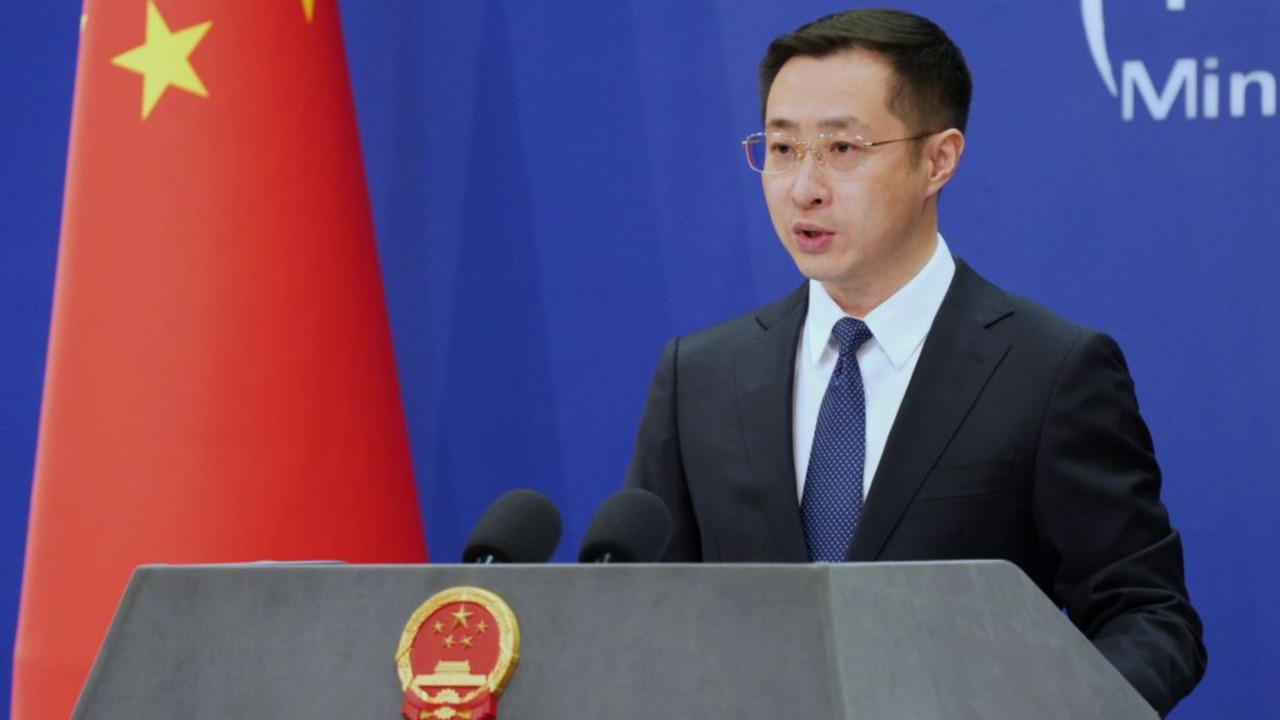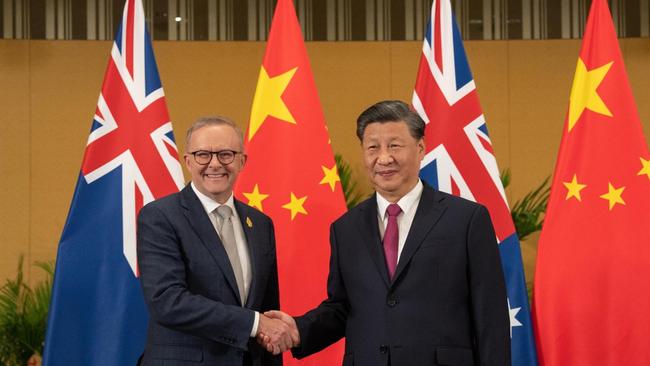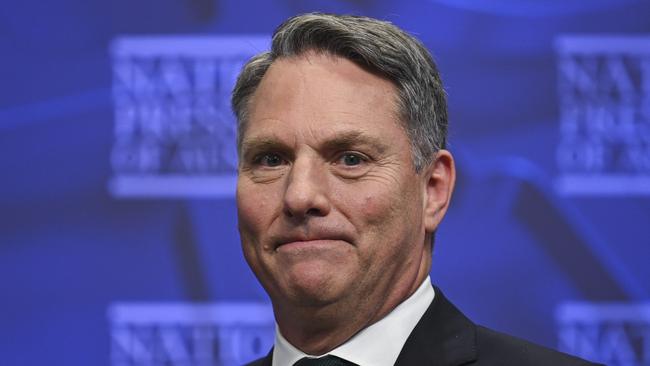China hits out at Australia’s ‘Cold War mentality’ after new defence strategy unveiled
Australia’s announcement it would spend more on missiles and ships to tackle a rising China has not gone down well in Beijing.

Innovation
Don't miss out on the headlines from Innovation. Followed categories will be added to My News.
Beijing has taken aim at the Albanese government’s inaugural national defence strategy, urging Canberra to drop its “Cold War mentality” as it denied China posed any risk to regional stability.
Defence Minister Richard Marles unveiled the strategy on Wednesday, announcing Australia would bolster its navy over the next decade to compete with an increasingly aggressive and coercive China in pursuit of its “strategic objectives”.
He warned China’s military build up and tensions with the United States had created an environment “where the risk of miscalculation is more ominous and the consequences more severe”.
Overnight, Chinese foreign ministry spokesman Lin Jian said China posed “no threat” to the region, pointing the finger instead at “major countries outside the region” who posed the biggest risk to regional security.

“We stay committed to the peace and stability of the Asia-Pacific region and the wider world, and pose no threat to any country,” he said.
In a veiled critique of the United States, Mr Lin said the formation of “exclusive groupings” had stoked “bloc confrontation” and muddied the waters in the South China Sea.
“As if the world needed any more instability. China firmly opposes it,” he said.
“We hope Australia will correctly view China’s development and strategic intentions, abandon the Cold War mentality, do more things to keep the region peaceful and stable, and stop buzzing about China.”
Mr Marles on Thursday doubled down on his comments, saying the national strategy had been underpinned by the “very complex set of strategic circumstances”.
“We are seeing a very significant military build-up in the region. China is engaging in the biggest conventional military build-up since the end of the Second World War. That is just a fact,” he said.
“And it does change the strategic landscape. It’s not just ourselves, but it’s all countries of the region and in fact, the world.
“We need to be making sure that we are the most capable nation that we can be, that we can resist coercion.”
Asked what coercion might look like, he pointed to sea trade operations.
“The reason why we make the observation that an invasion of Australia is a very unlikely scenario, no matter what happens, is because any adversary that wished to do us harm could do so much to us before ever setting foot on Australian soil, and disrupting those specific sea lines of communication, which I’ve described, would obviously achieve that,” Mr Marles said.
The Coalition’s home affairs spokesman, James Paterson, said he wished the grounds for the Chinese government to be angry were “stronger than they actually are”, hitting out at the Albanese government’s decision to slash programs.

During his speech to the National Press Club on Wednesday, Mr Marles confirmed the defence budget would grow by $50bn over the next decade, but just 10 per cent of that would be accessed in the next four years.
The government says it will claw back $72bn from dumped weapons programs to pay for more submarines, ships, missiles and drones. Mr Marles said the reality was the nation’s defence hinged on collective regional stability.
“As a medium power, we are never going to bring to bear the kind of military capability that exists in the United States or China,” he told the National Press Club.
“The strategic problem that we are trying to meet, that we’re trying to solve, is making sure that in a much less certain world in the future, we are able to resist coercion, and maintain Australia’s way of life.”
Senator Paterson said Mr Marles had slashed $72bn of cuts to defence capabilities.
“That adds to the $8bn in cuts that he’s previously announced, so $80bn of cuts to defence, and to compensate for that, he says we’re going to have an extra $5.7bn of spending over the next four years,” he said.
“It’s likely that will only modestly compensate for inflation and cost overruns, which are common on defence projects.
“So what actual new capability are we going to acquire that has somehow raised the ire of China’s government? It’s not clear to me based on early reading of the defence strategy or the integrated investment plan.”
More Coverage
Originally published as China hits out at Australia’s ‘Cold War mentality’ after new defence strategy unveiled



